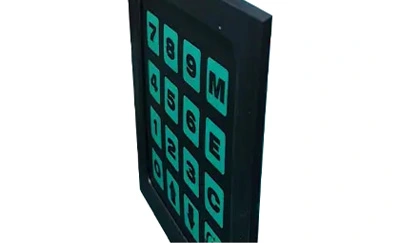
In the ever-changing landscape of industrial automation, membrane panels have come to the forefront as vital components, acting as the connection between human control and the complex machinery that powers modern industries. These tactile interfaces play a critical role in simplifying operations, improving efficiency, and giving operators the tools they need to navigate the intricacies of industrial processes. This exploration digs into the many-sided role of membrane panels in the realm of industrial automation, shedding light on their impact on control systems, user interactions, and the overall efficiency of manufacturing processes.
One of the main functions of membrane panels in industrial automation is to act as intuitive control interfaces. These panels are strategically designed to simplify the complexity of controlling sophisticated machinery and processes. Through tactile feedback, clear graphic overlays, and responsive touch interfaces, membrane panels enable operators to interact fluidly with control systems. This intuitive control capability is essential in environments where precision and real-time adjustments are key, allowing operators to efficiently manage and monitor various aspects of industrial automation.
Industrial environments are infamous for their harsh conditions, including exposure to dust, moisture, and extreme temperatures. Membrane panels are designed with a robust and resilient structure, capable of withstanding these challenging conditions. Sealed and durable, these panels ensure reliable performance even in the harshest industrial settings. The tough nature of membrane panels contributes to the longevity of control systems, reducing the need for frequent maintenance or replacements, and ultimately enhancing the overall efficiency of industrial operations.
In the field of industrial automation, connectivity is crucial. Membrane panels integrate seamlessly with various control systems, forming a cohesive interface between operators and the machinery they oversee. The compatibility of membrane panels with different protocols and communication standards ensures smooth data exchange and real-time monitoring. This integration improves the overall connectivity of industrial automation systems, providing a unified platform for managing and optimizing complex manufacturing processes.
Industrial automation is a broad field with unique requirements across different sectors. Membrane panels shine in their ability to be customized for various applications. Whether in manufacturing, logistics, or process control, these panels can be tailored to meet the specific needs of each industrial setting. Customization ensures that operators have access to the right controls and information relevant to their tasks, optimizing efficiency and reducing the learning curve associated with different automation processes.
Beyond functionality, membrane panels contribute to an enhanced user experience in industrial settings. The tactile feedback, ergonomic design, and clear visual indicators create a user-friendly environment for operators. Equipped with an efficient and intuitive interface, operators can concentrate on their tasks without being hindered by complex control systems. This positive user experience not only improves operational efficiency but also contributes to a safer and more ergonomic working environment.
In conclusion, membrane panels play a critical role in enhancing efficiency in the field of industrial automation. From acting as intuitive control interfaces and withstanding harsh industrial conditions to seamlessly integrating with control systems, offering customization for various applications, and improving the overall user experience, these panels are essential tools in modern manufacturing environments. As industries continue to embrace automation to increase productivity and lower costs, the role of membrane panels becomes more and more significant, acting as the central command hubs that enable operators to navigate and optimize the complex machinery driving the future of industrial automation.